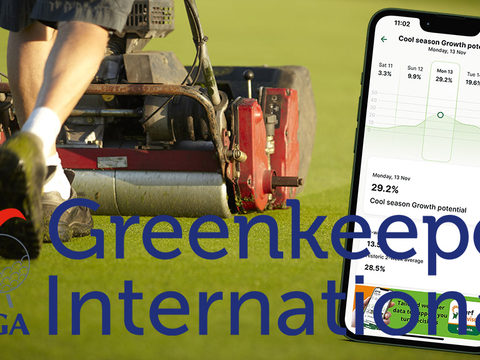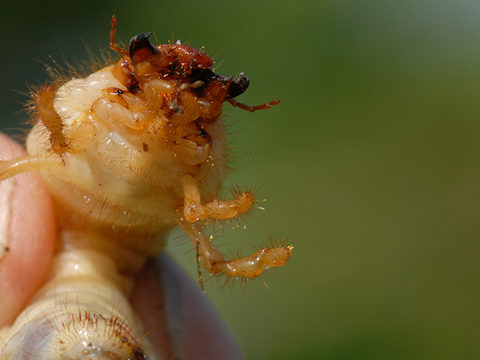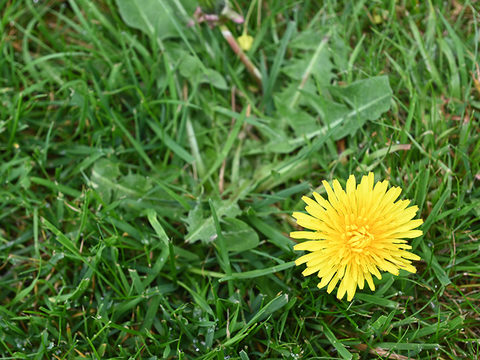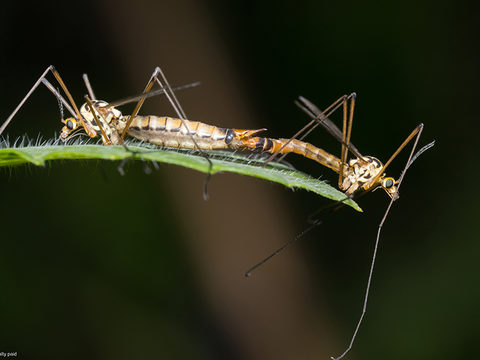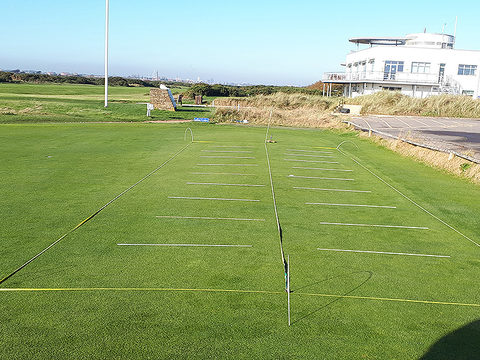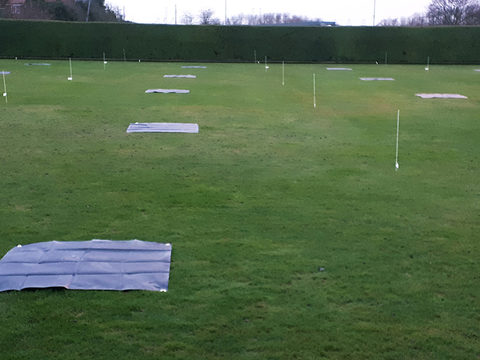STRI Research shows how to make every seed count
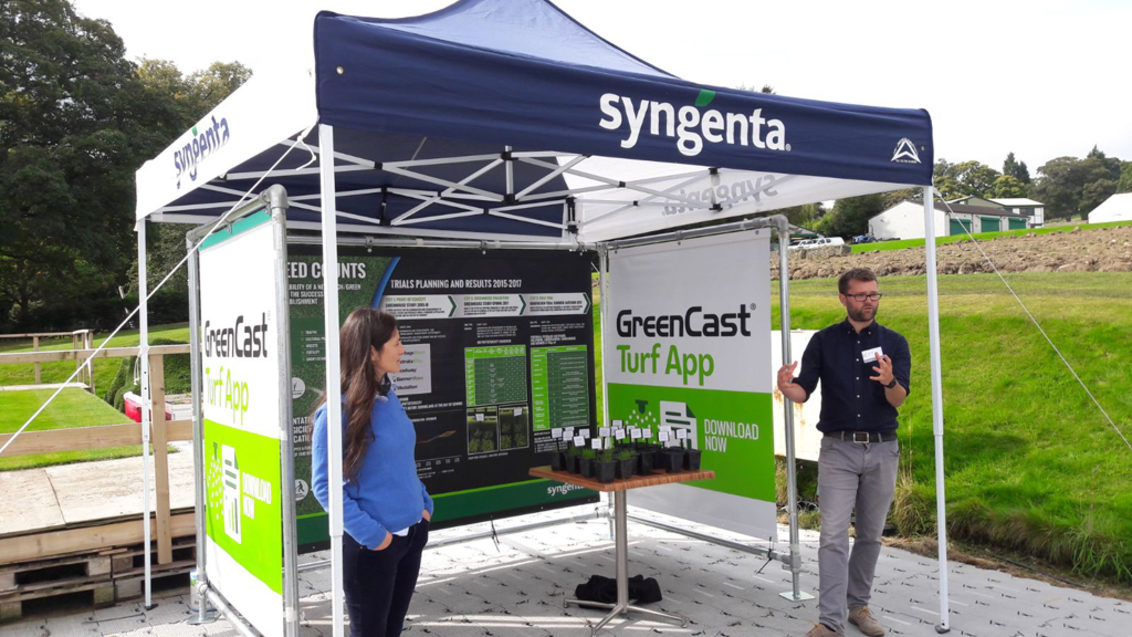
Every seed counts when it comes to restoring playing surface quality on golf courses or getting stadium pitches established and stable for the new season. Typically there are now greater expectations for turf managers to achieve excellent turf surfaces, with shorter intervals in which to achieve it.
Reporting new trials at STRI Research in Bingley, Yorkshire, this week (20-21 September), Syngenta Technical Manager, Marcela Munoz, highlighted the push for rapid seedling growth - with warmth and high humidity - creates conditions highly conducive to disease, especially in sports stadiums with poor airflow or under germination sheets.
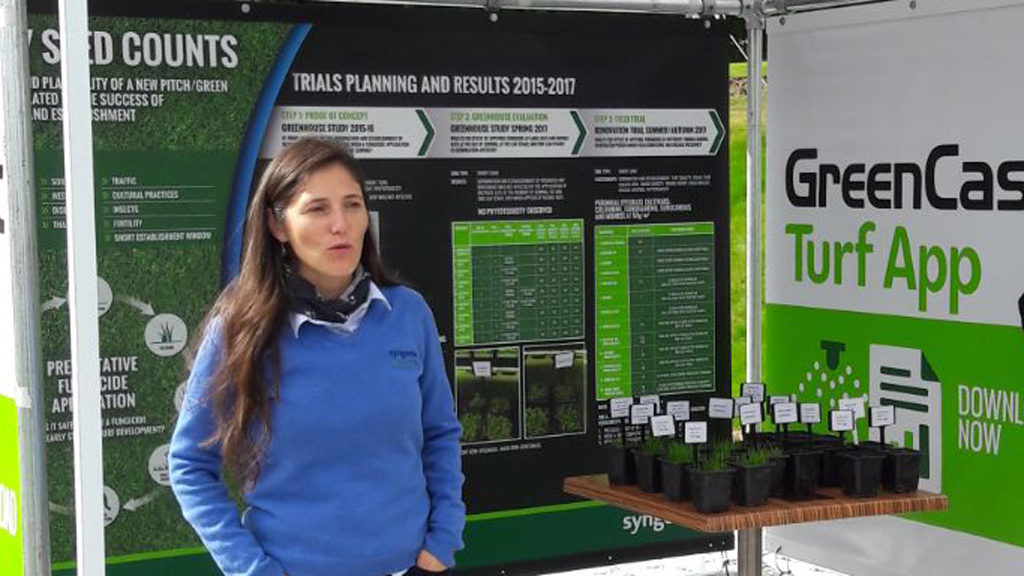
“Seedling blight diseases can affect success at many levels, from individual plant losses reducing sward density, to patches of bare ground or even total seedling kill – possibly losing two or three weeks in the restoration timeline that may never be recovered,” warned Marcela (below).
Syngenta research, in association with STRI, has investigated application timings and agronomy options to utilise new fungicide technology that can reduce the impact of seedling diseases and establish stronger swards more quickly, she reported Marcela.
“The work has looked at ways to protect seedlings through the first 14 to 21 days from emergence, when new growth is especially vulnerable to infection, but managers want to avoid travelling or walking on the surface to avoid seedling damage.” she added.
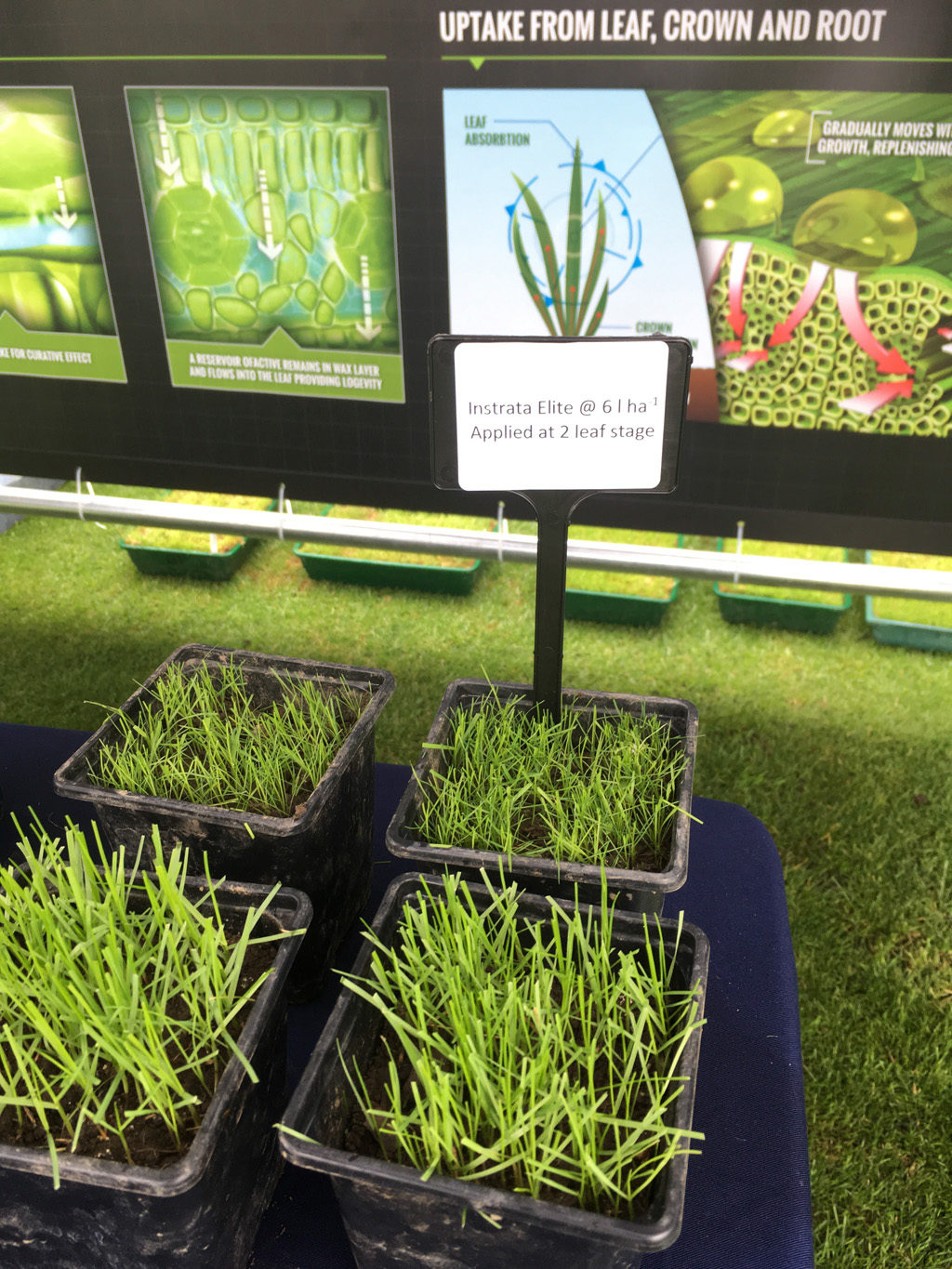
Pot trials at STRI (above) have already established that the crop safety of new Instrata Elite has no adverse effect on germination or seedling establishment on the Fescue, Bent or Ryegrass species tested. The trial looked at application at sowing, or in the days immediately prior to sowing, to investigate the potential to reduce disease pathogens on the soil surface and provide a reservoir of protection that may be taken up by the seedlings.
“Following that success, new pot trials have established that Instrata Elite is also safe to use on plants from first emergence. The trial showed no phytotoxicity effects from applications at the seeding; 1st leaf or 2nd leaf stage - with sprays at label rate and even tested at double the label rate.
“Although most turf managers would aim to avoid such early applications, to prevent physical damage to the plants during spraying, well-timed treatment with an appropriate fungicide could stop disease outbreaks from developing further, and help to protect clean seedlings from infection,” she advised.
Marcela pointed out that preventing seedling blight infection is seen as important not only to protect against die-back and losses, but also to avoid the stress on small plants associated with disease attack; clean healthy seedlings are better able to establish and develop stronger roots.
A further development of the seedling establishment research - which has been shown at STRI Research 2017 – is a field-scale evaluation of the pot trials. Instrata Elite has been applied to areas pushed to create disease conducive conditions for seedling blight pathogens to test the fungicide activity.
The trial has also been extended to include Primo Maxx II in the early foliar application, to provide information for future recommendations on the optimum time to begin the PGR programme after seeding. The work assesses potential benefits of physiological effects to promote tillering and stronger rooting, whilst evaluating any effect of growth regulation on the establishing leaf.
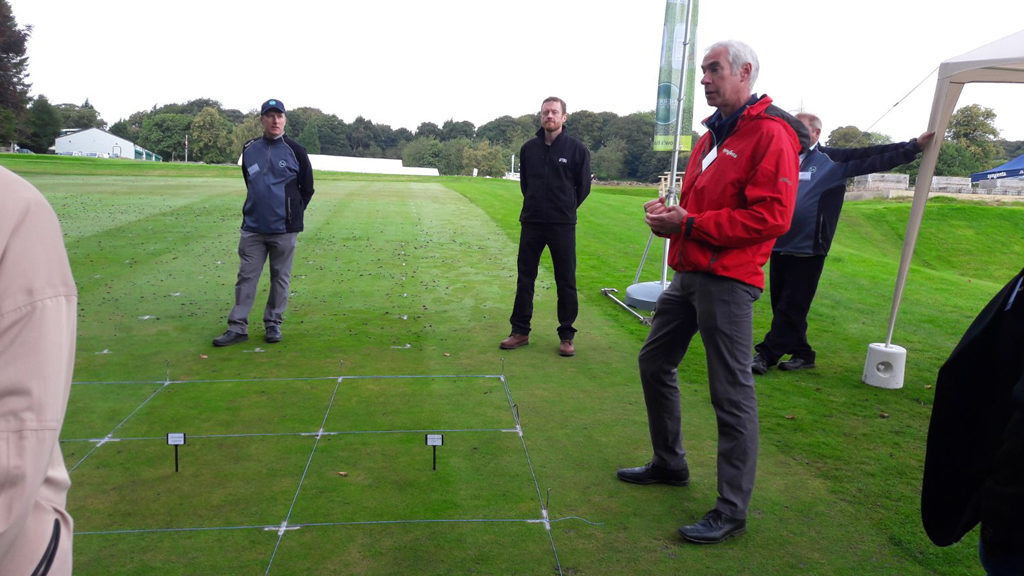
“The new fungicide trials are part of an initiative to provide future fully integrated recommendations for seeding best practice,” added Marcela.
“It builds on previous successful Syngenta and STRI seedling establishment research with Qualibra wetting agent - which demonstrated the significant advantages for seedling growth from more effective soil moisture management."
“Together with ITM aspects of seed selection - for varieties with good germination, vigour and disease resistance – along with management of shade, moisture and fertility, there will be real chance to enhance the speed and reliability of future seedling establishment and successful renovation,” she concluded.

